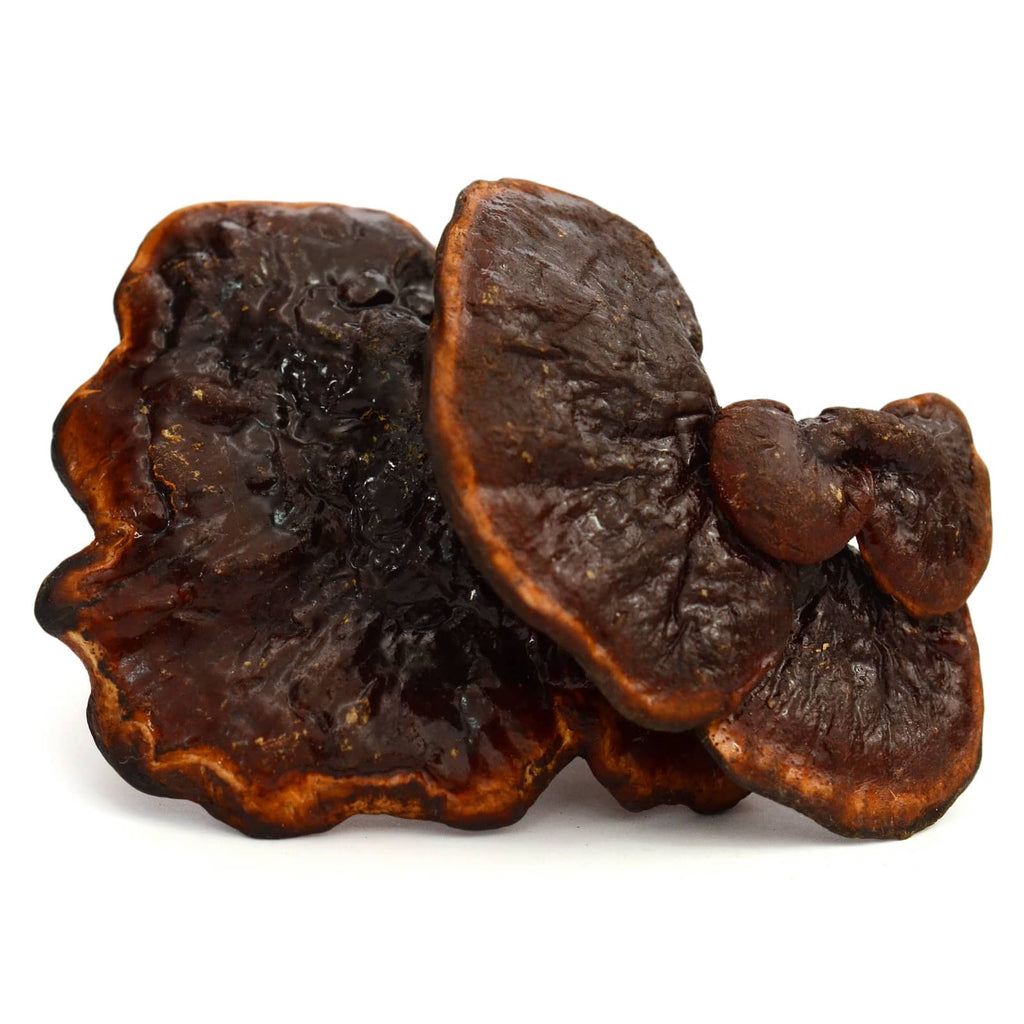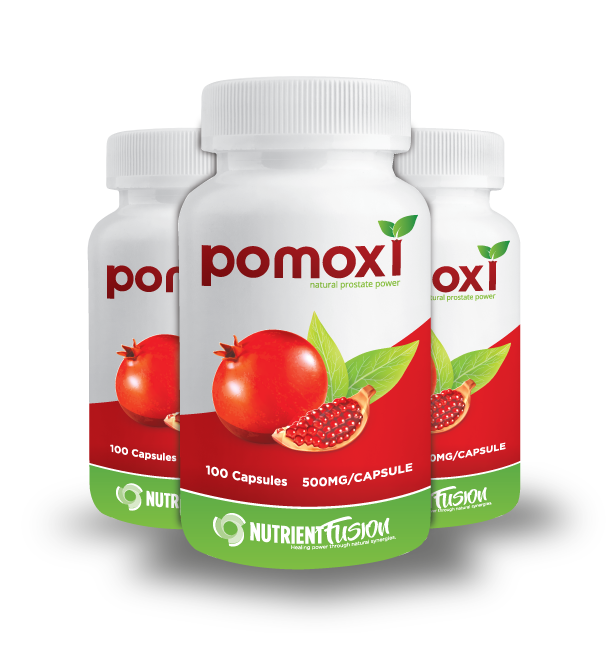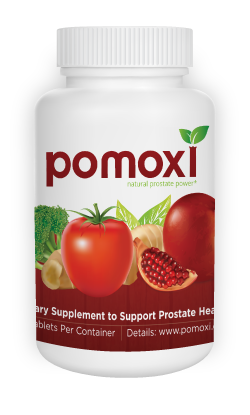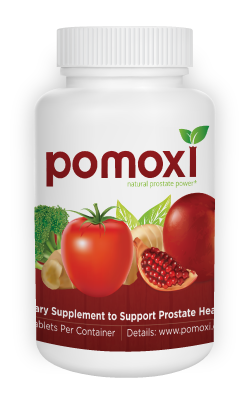Reishi (Ganoderma or Lingzhi Mushroom)
A mushroom species commonly used in China & Japan that provides a variety of supportive effects.

Subscribe and Save 15%
BUY NOW
The Science of Reishi
Medicinal mushrooms have been used for hundreds of years, mainly in Asian countries. The medicinal mushroom Reishi, or Ganoderma lucidum is widely known in traditional medicines, as well as in modern applications such as functional foods or nutraceuticals. The active constituents found in Reishi include polysaccharides, dietary fibers, proteins, minerals, such as zinc, copper, iodine, selenium, and iron, vitamins, and amino acids. (1)
Reishi is a mushroom that has recently been found to support prostate health by lowering PSA (Prostate Specific Antigen) in clinical studies (2, 3) and reducing levels of 5-aplha reductase, the enzyme that helps convert testosterone to DHT (Dihydrotestosterone) DHT, believed to play a role in prostate enlargement. (3, 4)
Reishi extract also lowers testosterone levels through its individual compounds and the synergy of its components. (4, 5)
Reishi supports healthy immune function and modulates androgenic hormones for better prostate health.
In addition to prostate health benefits, reishi is known, studied, and used for a wide variety of health effects: including immune system support, liver health, healthy blood sugar maintenance, and it is even beneficial to the respiratory system.
Additionally, reishi has antioxidant benefits. Prevention of free radicals, increased immunity, and healthy inflammation control also hold an important role in overall heath. With its antioxidant effects, reishi conveniently provides all these effects together.
What is Reishi?
Belonging to the genus ganoderma, reishi is the common name for the mushroom species ganoderma lucidum, tsugae, and lingzhi. Another common name for reishi is the lingzhi mushroom.
While it grows in many parts of the world, its use as a tonic is the most well-documented in China and Japan. Made into a bitter tea, it was used to bestow recovered strength and vitality.
Today, research is beginning to uncover and confirm the ancient uses of this mushroom. Reishi is one of the most studied therapeutic mushrooms – up there with chaga and cordyceps.
Though it has many health-promoting possibilities, its potential to support prostate health is the most promising.
Reishi’s Compounds
How does this humble mushroom support prostate health? This power comes from reishi’s well-studied, well-documented compounds.
The mushroom contains:
- Proteins and amino acids (lysine, leucine)
- Polysaccharides (sugar, starch, and fiber)
- Terpenoids (including triterpenes)
- Phenols (antioxidants)
Of all these, reishi’s polysaccharides and triterpenes appear to be responsible for the bulk of its prostate-supporting potential. These compounds work together with a few of its other compounds for noticeable effects on your body.
Among all of reishi's beneficial compounds, triterpenes stand out the most. Falling under the same complex class of substances that includes cholesterol, these nutrients exhibit the strongest effects, and take on the lion’s share of reishi’s potential to support prostate health.
Triterpenes
While found in the whole reishi mushroom and easily consumed in dry powder, whole supplement, or tea form, the whole processed mushroom may not have enough triterpenes to support your body effectively.
One study showed that polysaccharides made up only 1.1% to 5.8% of some whole reishi products. As for triterpenes, some were found to have 7.8%, while it was undetectable in others.
Extraction, harvesting, and production methods of any supplement are important to consider before choosing a reishi supplement that’s right for your health and your prostate.
Importance of Supplement Sources
Manufacturers of any reishi supplement for prostate health benefit must adhere to the following guidelines to be considered a truly therapeutic supplement:
- Use the correct parts of the reishi fruiting body
- Harvest the fruiting body at the right time and season
- Proper extraction
- Ensure adequate compound amounts
Whole, dried reishi mushrooms made into a supplement powder may not have substantial healing compounds enough to impact prostate health, especially if not harvested or processed correctly.
Triterpenes are highest in certain parts of the fruiting body and at certain stages of the mushroom’s growth. In some cases, it’s also best that these nutrients are extracted with alcohol and then processed into final supplement form, in order to ensure substantial amounts.
For this very reason, being knowledgeable and selective about your reishi supplement and its production methods is important when considering its impact on prostate health.
Supplements with around 6% (or more) triterpenes by weight (with 13.5% of the same for polysaccharides) are recommended for experiencing any noticeable benefit to prostate health.
Using Reishi
Tests on reishi mushroom supplements and their use demonstrates its relative safety, with few negative side effects, interactions, or concerns.
For a preventive dose, 980 mg of a compound-rich extracted supplement is recommended – and up to 3000 mg daily.
Talk to your doctor about using Pomoxi, an antioxidant supplement for the prostate boasting many all-natural, thoroughly researched botanicals and ingredients – which includes high concentrated extracts of the reishi mushroom and other well-documented ingredients such as curcumin, green tea, ginger, and much more.
References
1. Batra, P, Sharma, AK, Khaiuria, R. Probing Lingzhi or Reishi medicinal mushroom Ganoderma lucidum (higher Basidiomycetes): a bitter mushroom with amazing health benefits. Int J Med Mushrooms. 2013;15 (2): 127-43.
2. Nahata, A, Dixit, VK. Ganoderma lucidum is an inhibitor of testosterone-induced prostatic hyperplasia in rats. Andrologia. 2012 May;44 Suppl 1:160-74.
3. Noguchi M, Kakuma T, Tomiyasu K, Kurita Y, Kukihara H, Konishi F, Kumamoto S, Shimizu K, Kondo R, Matsuoka K. Effect of an extract of Ganoderma lucidum in men with lower urinary tract symptoms: a double-blind, placebo-controlled, randomized, and dose-ranging study. Asian J Androl. 2008 Jul;10(4):651-8.
4. Liu, J, Tamura, S, Kurshiki, K, Shimizu, K..Anti-androgen effects of extracts and compounds from Ganoderma lucidum. Chem Biodivers. 2009 Feb;6(2):231-43.
5. Medicinal Mushrooms (PDQ®): Health Professional Version. PDQ Integrative, Alternative, and Complementary Therapies Editorial Board. 2002-2017 Oct 6.


